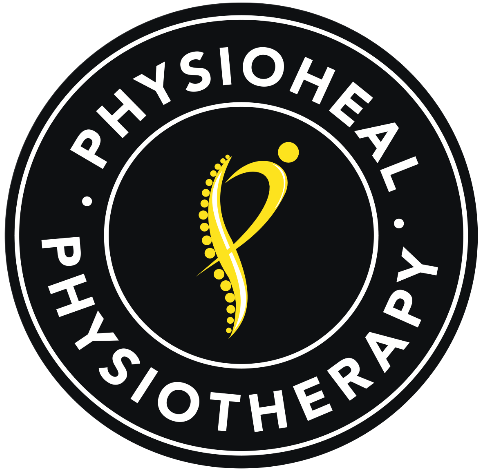Physiotherapy for Menopause: Your Path to Empowerment
Menopause is a natural phase in a woman’s life, typically occurring between the ages of 45 to 55. It signifies the end of menstruation and fertility, accompanied by a decline in the body’s estrogen production. While this transition is a normal part of aging, it can bring about a range of physical and emotional symptoms, affecting a woman’s overall well-being. In this comprehensive guide, we’ll explore how physiotherapy plays a crucial role in managing menopausal symptoms, offering relief and empowerment.
Understanding Menopausal Symptoms
Menopause impacts each individual differently, often starting with changes in the menstrual cycle. These changes can include:
- Shifts in Menstrual Cycle: Periods may become irregular before eventually ceasing altogether.
Beyond these changes, the hormonal shifts during menopause can lead to a range of symptoms, including:
- Managing Hot Sweats and Flushes: Coping with sudden waves of heat and flushing, frequently accompanied by sweating.
- Addressing Night Sweats: Managing intense perspiration during sleep, leading to disrupted rest.
- Improving Sleep Quality: Dealing with difficulties falling asleep or staying asleep, contributing to fatigue.
- Balancing Mood Swings: Navigating mood swings and irritability, which can impact daily life.
- Coping with Palpitations: Addressing awareness of heartbeats, potentially causing anxiety.
- Metabolism Changes: Understanding changes in metabolism that can lead to weight gain.
- Addressing Vaginal Dryness: Managing reduced vaginal lubrication, leading to discomfort.
- Breast Changes: Adapting to changes in breast appearance and elasticity.
- Supporting Mental Health: Managing feelings of sadness or anxiety.
- Managing Weight: Addressing an increase in body weight and changes in fat distribution.
- Bone Health: Taking steps to prevent reductions in bone density, decreasing the risk of osteoporosis.
- Relieving Joint Discomfort: Managing stiff and achy joints.
- Reducing Aches and Pains: Tackling generalized discomfort.
- Caring for Your Skin: Adapting to alterations in skin texture and appearance.
- Preventing UTIs: Reducing the risk of recurrent urinary tract infections (UTIs).
- Handling Headaches or Migraines: Managing frequent headaches or migraines.
Diagnosis
If you suspect you’re experiencing menopause, consulting a general physician is essential. They can diagnose menopause based on your symptoms and conduct a blood test to measure hormone levels.
Treatment Options
Fortunately, various treatment methods can alleviate menopausal symptoms. Many women find success with a combination of approaches:
- Hormone Replacement Therapy (HRT): HRT replaces declining hormones. Different types are available, so consult your general physician to find the best fit. HRT can be administered through tablets, skin patches, vaginal creams, gels, pessaries, or rings.
- Cognitive Behavioral Therapy (CBT): If you’re experiencing stress and anxiety, CBT can help you develop coping strategies. Consult your healthcare provider for guidance on accessing CBT.
- Exercise and Physiotherapy: Women’s health physiotherapists specialize in addressing menopausal symptoms. They assess specific symptoms, pelvic floor health, mobility, posture, sleep quality, hydration, and nutrition. Based on this evaluation, a tailored treatment plan is created.
How Physiotherapy Helps
Physiotherapy can be especially effective in managing menopausal symptoms:
- Muscular Aches and Pains: Menopause often causes aches and weakness. Targeted physiotherapy and massage can reduce these symptoms, enhancing overall strength and fitness.
- Pelvic Floor Weakness: The menopause can weaken pelvic floor muscles, leading to incontinence or organ prolapse. Physiotherapy, with pelvic floor exercises, can strengthen these muscles, preventing issues.
- Stress and Anxiety: Exercise sequences and mindful activities like yoga, Pilates, and meditation can relieve stress and tension. These activities also improve general fitness, strength, flexibility, and pelvic floor strength.
- Brittle Bones: Some post-menopausal women experience decreased bone density. Targeted physiotherapy strengthens surrounding tissues, reducing the risk of osteoporosis.
Choose Physioheal Physiotherapy in Gurgaon
At Physioheal Physiotherapy Gurgaon, we offer a range of physiotherapy services, including women’s health physiotherapy. Dr. Divya Gaur, the best physiotherapist in Gurgaon, leads our experienced team. Our research-based treatments are proven to be effective.
For more information on our services or to book an assessment with our specialist physiotherapists, including Dr. Divya Gaur, call Physioheal at +91-9999259307 today. Take the first step toward managing menopausal symptoms and improving your overall well-being with the best physiotherapy clinic in Gurgaon.
